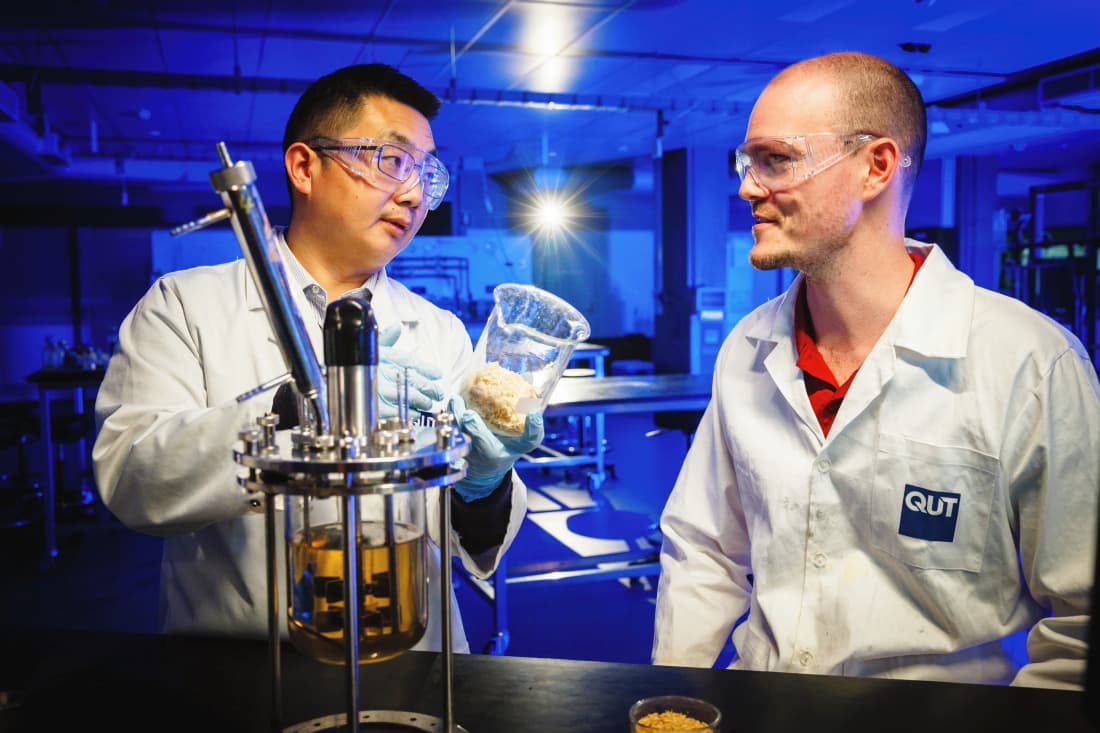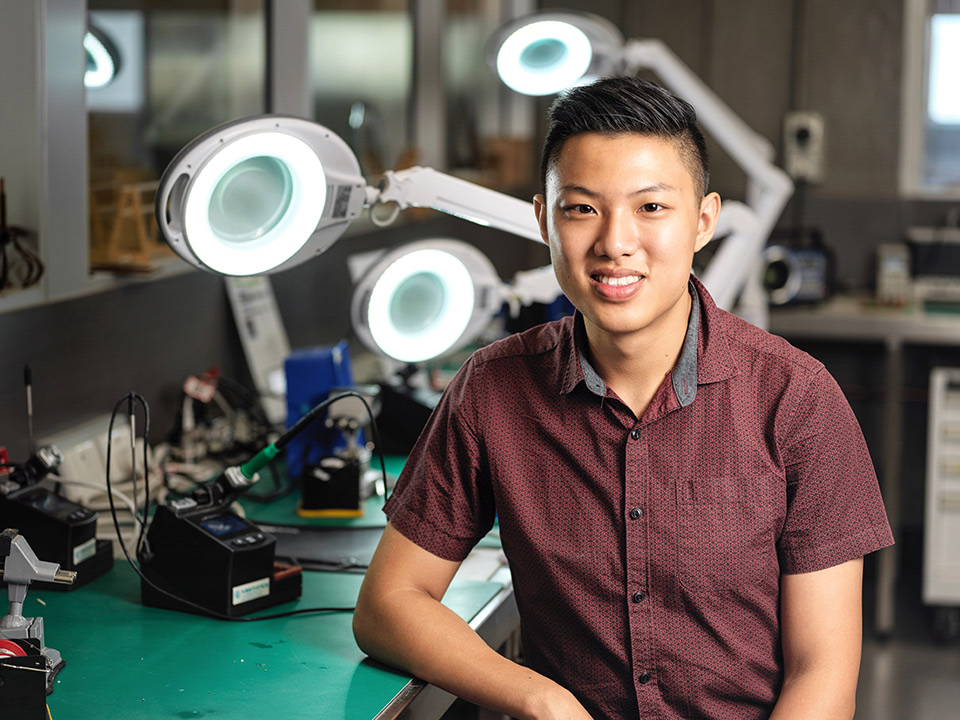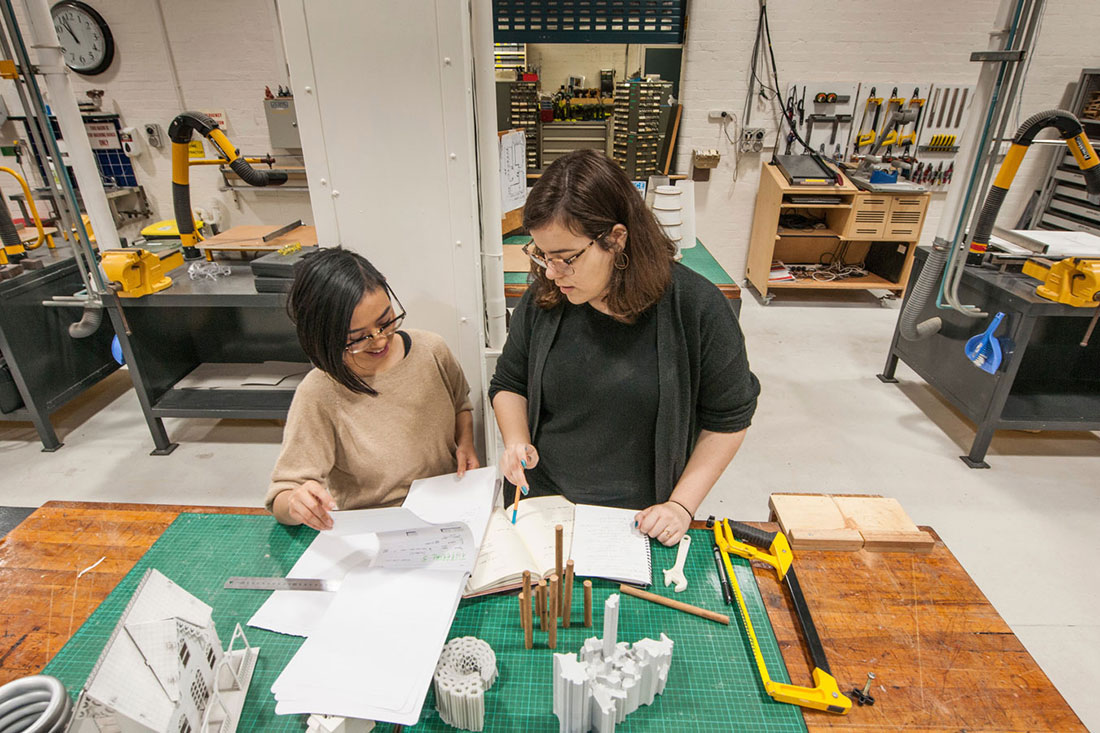We focus on high quality education and research on the design, manufacture and operation of biomedical, chemical and mechanical systems and processes. We are driven to develop new equipment, technology and methods that improve the quality of human health and the environment.

Engage
Gain access to our expertise, find next-generation talent or join our thriving alumni community.
Our people
Our staff collaborate on projects that lead to real-world impact and help shape the future.
Our research
Our collaborations bring together economics, biology, medicine, engineering and sciences to design and develop new equipment and methods that improve the quality of human health and life. Our research outputs are wide ranging - from ‘The Drifter’, a floating device that delivers real-time data to defend against flash flooding and water pollution, to a 3D-moulded mattress that supported a 10-year-old patient during a lengthy spinal surgery.
Centre for Biomedical Technologies
Our research and development focuses on better patient treatments and quality of life into the future using regenerative approaches, robotics and artificial intelligence, and advanced manufacturing to expand surgical possibilities and reduce complications.
The Australia-China Centre for Tissue Engineering and Regenerative Medicine (ACCTERM)
We're an international network that aims to generate interdisciplinary awareness and promote and expand scientific cooperation and communication between China and Australia.
Biomechanics and Spine Research Group
We research paediatric spinal deformity and other spine conditions to improve treatments and understanding of these disorders to ensure the best patient outcomes.
Centre for Agriculture and the Bioeconomy
Our research is enabling farmers to grow more food with less resources, developing crops that are more nutritious and resistant to drought and pests, and discovering innovative ways to make renewable fuels, chemicals and other products from agricultural wastes.
Centre for Materials Science
The QUT Centre for Materials Science is the fundamental scientific engine room for materials innovation, providing materials-based solutions for QUT’s application driven Centres and research strengths.
Centre for Behavioural Economics, Society and
Our goal is to understand how human behaviour and public policy can be influenced by behavioural economics and social marketing to benefit the health of our society, sustain our environment for future generations and safeguard our economy in the digital age.
Visit the Centre for Behavioural Economics, Society and Technology website
Centre for the Environment
We bring research, government, industry and community together to create real-world solutions to the most pressing environmental challenges. We aim to deliver ground-breaking fundamental and applied research that conserves and restores environmental systems and ensures the sustainability of natural resources in our natural, production and built landscapes.
Laboratory for Advanced Modelling and Simulation in Engineering and Science (LAMSES)
We carry out real-world numerical and experimental research in the fields of engineering and science.
Our facilities

Courses
Our students learn to design new equipment, processes and technologies to improve human health and the environment.
News and events

Qld Black Summer bushfire study reveals building vulnerability & path to resilience
A QUT study of buildings lost to bushfire on Queensland’s Scenic Rim in the 2019/20 Black Summer has identified key vulnerabilities of homes in bushfire-prone areas and ways communities could increase their homes’ resilience.

New CSIRO scholarships support QUT roboticists
Three QUT postgraduate students have embarked on robotics research that tackles disaster response and climate change, after being awarded the first scholarships from a major CSIRO scholarship fund.

QUT research boosted with eight Accelerator grants
Eight QUT research teams have received more than $3.6 million in grants from the Australian Economic Accelerator Ignite program.
Contact us
Contact the School of Mechanical, Medical and Process Engineering for more information on our courses, research and staff.
